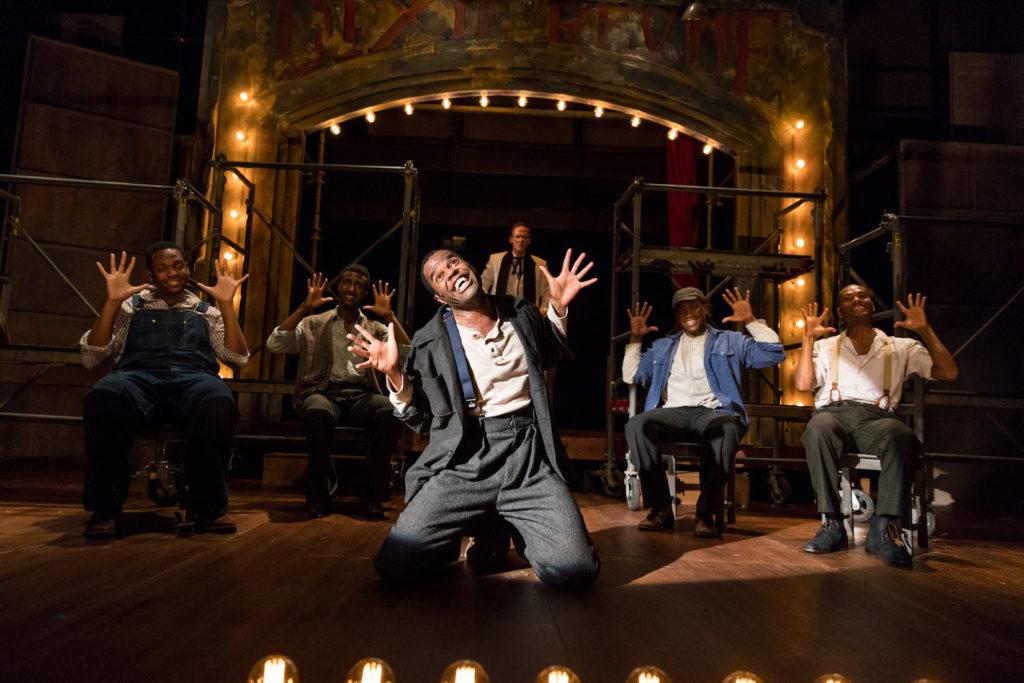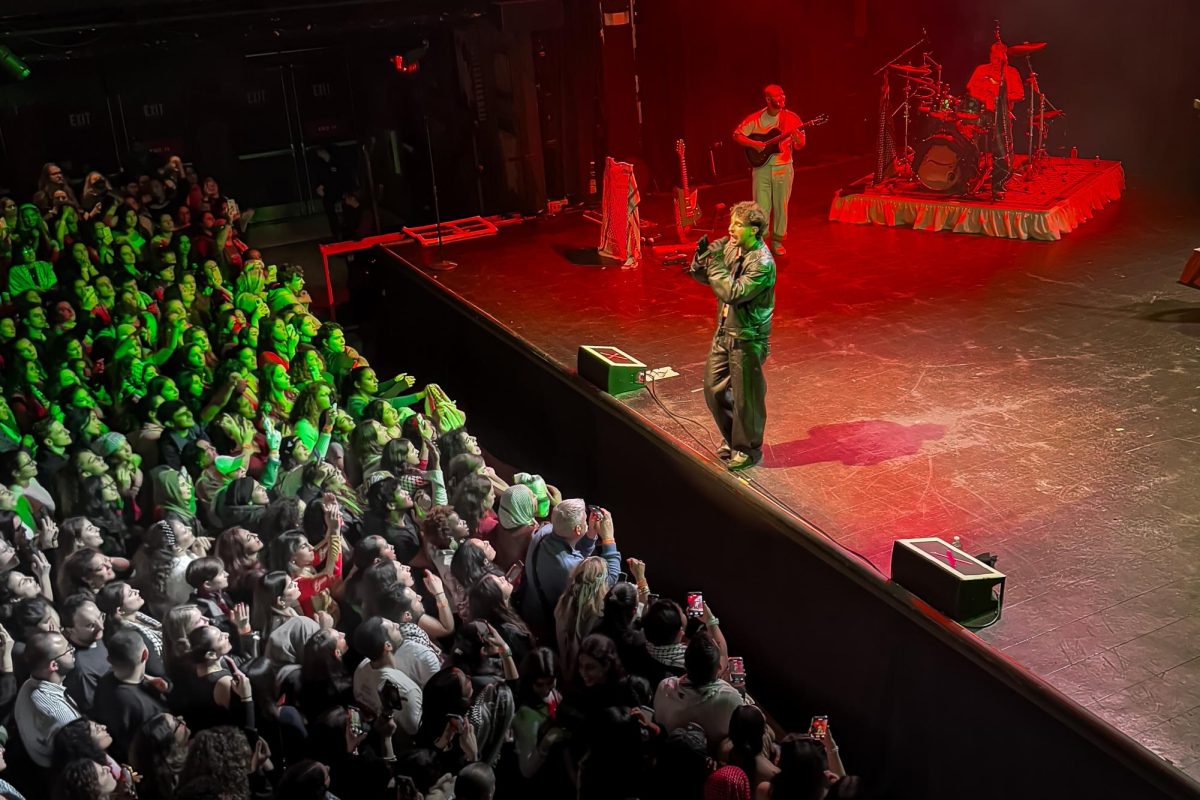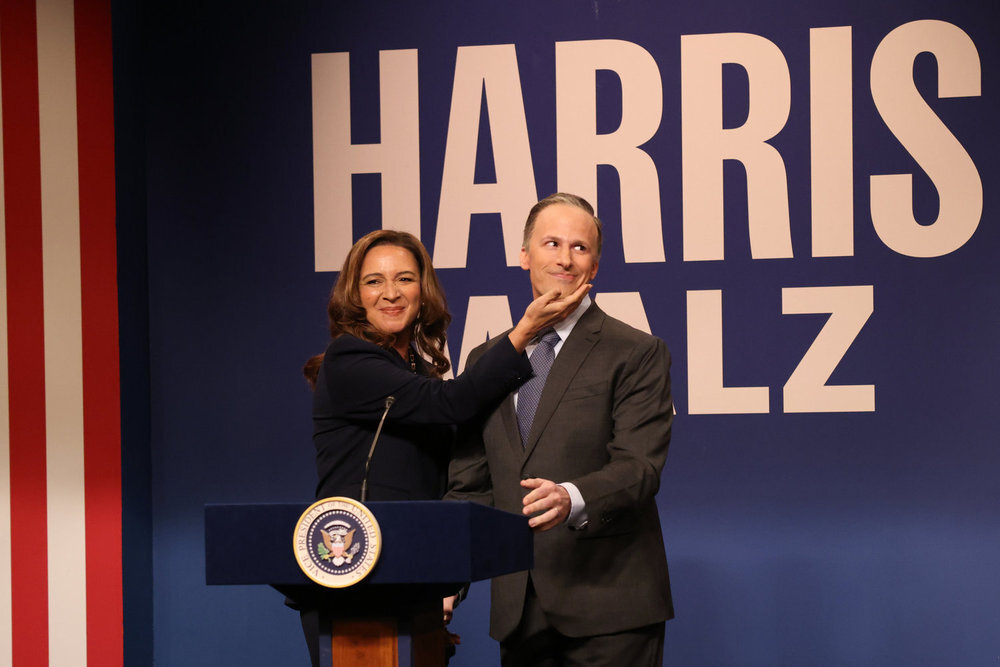Art of high caliber and impact should always reflect and challenge the era it represents or in which it was conceived. It would be a delight to say that the SpeakEasy Stage Company’s wonderful production of “The Scottsboro Boys,” which had its New England premiere last night at the Calderwood Pavilion at the Boston Center for the Arts, does not reflect our current landscape. Hopefully, this will soon be possible.
With a book by David Thompson and music and lyrics by John Kander and Fred Ebb, the show presents the landmark trial of nine black teenagers falsely accused of raping two white women in 1931 Alabama as a minstrel show, an inventive – if sometimes grating – framework that presents their story with a poisonous tongue-in-cheek sensibility.
The energetic cast, rounded out by the resplendent Brandon G. Green and Maurice Emmanuel Parent as two minstrel stock characters – Mr. Tambo and Mr. Bones, respectively – and Russell Garrett as the Interlocutor of the show, sings, dances and cakewalks through a dilapidated near-bare stage.
Designed by Eric Levenson, the set seems to physicalize the South’s toxic racial history by decontextualizing it completely, reminding us of the ghosts that still haunt this country. With an old-timey tent used as a stage-within-a-stage and only a few chairs and movable catwalks in sight, the focus of this production lies in its message.
The message – one you think we would have learned by now – is that racism constantly rears its ugly head in our justice system, demonizing disenfranchised minorities as an easy solution. The minstrel format allows the production to pull no punches when presenting the commonality of prejudice-as-entertainment, which makes for a musical at which the audience laughs and applauds even as they wince at the harsh realities.
Inventively choreographed by Ilyse Robbins, the cast pantomimes, switches roles and – in one particularly inspired sequence – shadow-plays behind a backlit sheet as we are shown how the absurdity of the court system can often mirror that of the minstrel shows of the day.
De’Lon Grant, whose imposing voice ranges from molasses-smooth to chillingly grave throughout the performance, provides the moral center of the show as Haywood Patterson, who emerges as a sort-of leader of the pack. Constantly looking out beyond the audience and into present time, his glare challenges us to ignore the obvious parallels between now and the Great Depression-era Deep South that allowed this shameful episode to occur.
The intimate 250-seat space ensures the audience feels the tensions, troubles and longings of the Scottsboro Boys, who underwent numerous wrongful trials and convictions lasting over two decades. When Wakeem Jones, a Boston Conservatory student who plays the youngest member of the enjailed, speaks of never seeing his family again, his palpable fear cuts deep into our psyches.
Does a show this dark and bent on inducing uneasiness work? While it doesn’t rank among their best work, Kander and Ebb, the iconic duo behind other socially-conscious musicals like “Cabaret” and “Chicago,” infuse every moment of the score with their sardonic wit and pitch-black humor. The obvious trouble here, despite an all-around excellent ensemble cast and near-flawless staging, is finding entertainment and redemption in such a cruel and continuing chapter of our country’s history.
After donning blackface for a “Where are they now?” finale that leaves little room for optimism, the men solemnly walk offstage, leaving a woman who has been quietly watching the events from the sidelines alone on a chair. We realize who she is and who she will become, and know there is hope.
“The Scottsboro Boys” is in performance at the Calderwood Pavilion at the Boston Center for the Arts through Nov. 26.
Photo courtesy Nile Hawver / Nile Scott Shots









